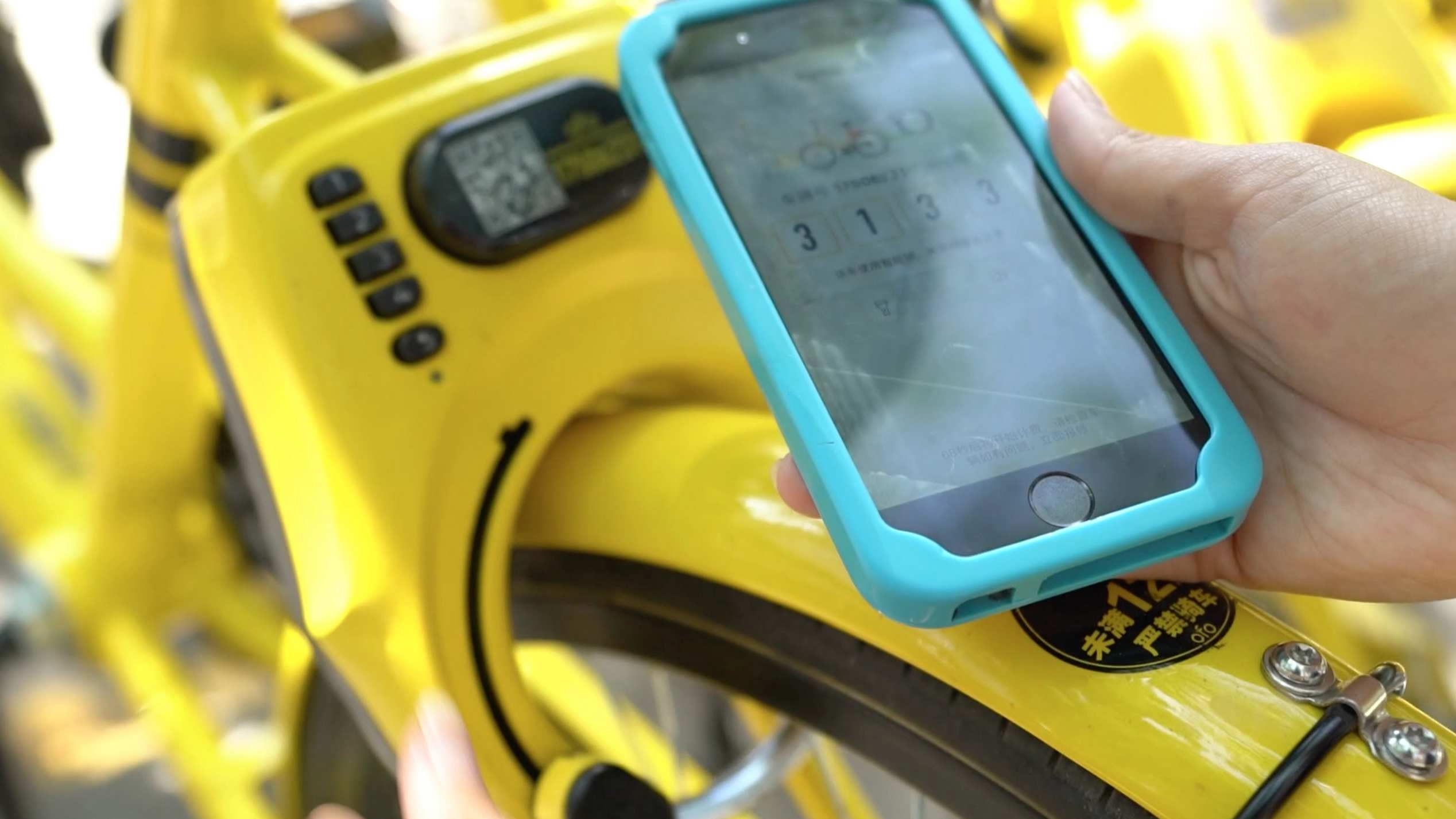
Business
13:59, 09-Nov-2017
The big data behind the shared bikes
By Laura Schmitt and Jiang Rui

China’s shared bikes are being hailed as one of the four big inventions to come out of the country in modern times, aside from the high-speed railway, online shopping and mobile payment. It has been just 1.5 years since the first shared bikes appeared in downtown Shanghai, but now it is impossible to imagine China’s big cities without the brightly-colored two-wheelers.
According to the China Bicycle Association, more than two million shared bicycles hit the county’s streets in 2016. They expect the number to reach more than 20 million by the end of 2017.
There is, however, a hidden aspect to this high amount of vehicles in circulation, the apps the users use to locate, rent and pay for their usage, it's called big data.
Shared bike companies such as ofo and Mobike are recording every single trip that is conducted on their bikes via the apps. This not only allows them to spot where there are crowds in real time; they can further discern migration patterns and gain a bigger picture of the bike traffic in any city in which they are present. The data, in turn, can be used for a variety of purposes.

"We know exactly where there’s a crowd by looking at our map. We can help disperse the crowd by giving bonuses and diverting incoming riders," explains Xia Yiping, co-founder of Mobike.
Furthermore, Chinese shared bike companies are using big data to manage their operations more efficiently. The clean-up crews they have hired to pick up bikes from busy spots and re-distribute them around the cities where are needed, all works based on the instructions given by computers analyzing the fleet of bikes’ position at any given time.
"We deploy our bikes at subway stations in the morning and around office buildings in the afternoon because people leave the subway and ride a bike to work in the morning and ride back to the subway in the afternoon," says Chen Shunqiang, a member of ofo’s operations team.

Parking spaces for bikes on sidewalks are reshaping the cityscapes across China./ CGTN
Parking spaces for bikes on sidewalks are reshaping the cityscapes across China./ CGTN
Aside from improving their company’s own operations, the bikes’ big data is already beginning to play a role in reshaping China’s cities, as the insights gained are being shared with local government.
"We also leverage our data to work with government or city planners to help transform the city into a better place. Right now, a lot of cities don’t have a bike plan for riders. We want the whole city to have a system-wide bike lane plan so everyone can ride in a safe and convenient way," Xia tells us.
In addition to city planning and company operations, there is another angle to collecting users’ trip history. When it comes down to the individual, the information garnered from big data could end up finding a commercial application, as Li Muyang, a financial analyst who has written extensively about the shared bike phenomenon reveals.

Insights into migration patterns can improve operations, urban planning and even targeted marketing/ CGTN
Insights into migration patterns can improve operations, urban planning and even targeted marketing/ CGTN
"We can keep a record of a user’s movements and know where they go most often, what their regular routes and time slots are. Then we can provide them with personalized recommendations. We can tell them where there are good places to eat along with their daily routes, coffee shops, for example."
Rediscovering China is a 30-minute features program offering in-depth reports on the major issues facing China today. It airs Sunday at 10.30 a.m. BJT (0230GMT), with a rebroadcast at 11.30 p.m. (1530GMT), as well as Monday 8.30 a.m. (0030GMT) and Friday 1.30 p.m. (0530GMT).

SITEMAP
Copyright © 2018 CGTN. Beijing ICP prepared NO.16065310-3
Copyright © 2018 CGTN. Beijing ICP prepared NO.16065310-3